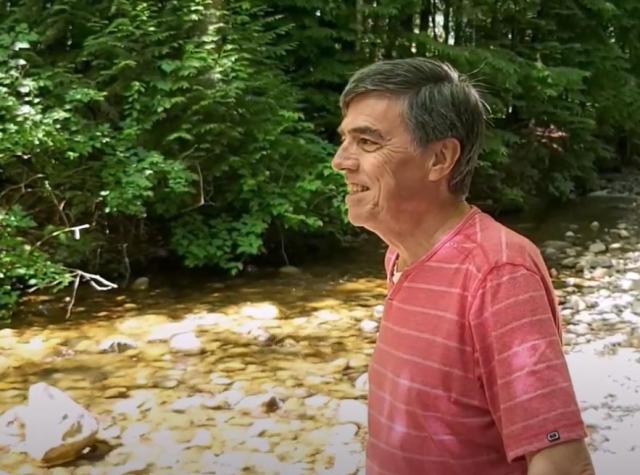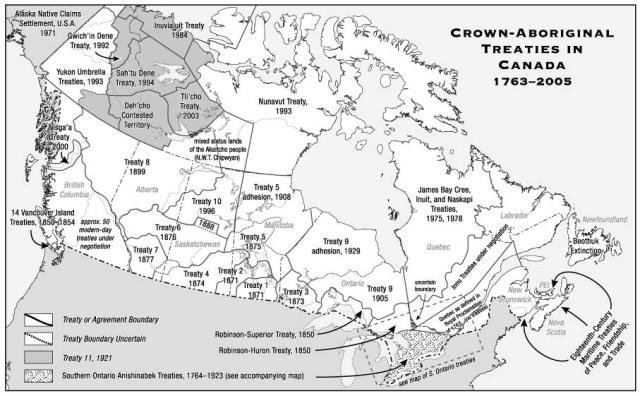Elder Alf Dumont: Starting again at the beginning is a good way to move forward together.

"In the worship I attend, we have acknowledged the land. Now though, we follow that with a prayer for reconciliation," said Elder Alf Dumont.
I had begun my conversation with Alf saying that I wanted to take up the Truth and Reconciliation Commission of Canada’s challenge to keep telling the story of colonization and residential schools, and the churches’ role in it. I told him that my friend Cheryl and I were thinking about ways to make the church aware of what resources were available, and how they might explore them in a church setting.
Alf was quiet for a moment, then started talking about how we acknowledge the land. I had expected him to talk about the resources he uses most and where a conversation like this belonged. But I have sat with Elders enough to understand that this was his response to my question.
As well as talking about the congregation's practice, he talked about his own. Alf is Anishnaabe and lives in Vancouver where he works with Indigenous college students. He explained that he cannot welcome the students to the traditional territory where the college is because it is not his home land. But he always acknowledges the land and the traditional keepers of it.
As I listened, I realized that Alf was telling me to begin at the beginning. The first step is to acknowledge the people we hope to reconcile with, to recognize their history with respect. Only then can we take the next step of learning about our historic and ongoing interaction.
Acknowledging the land can help set ground for conversation. Settlers acknowledge that we are newcomers. Indigenous people are recognized for having been here long before us. On an individual basis, this starts to shift the power structure between us.

Reconciliation requires shifting the power dynamics. We cannot reconcile with someone we do not see as our equal. We work toward reconciliation when we respect the other, listen, and learn from them.
Reconciliation requires sharing a space, standing on the same ground together. Abject apology is not reconciliation. If we enter a conversation only feeling guilty, we again centre the conversation on us. We need to learn to listen so that we can lament both the effects of colonial actions and the role institutions we identify with had in them.
The United Church has a document to help churches acknowledge the land. For some, this step is challenging. It takes practice. I want to acknowledge that I wrote this piece from a place that is the traditional territory of the Saugeen Ojibway, and that I have a lot to learn from the way they cared for these lands and waters before settlers came here.
Alf told me that the next step that the congregation he attends took was to add a regular prayer for reconciliation. Another next step might be to locate Friendship centres and build relationships with traditional knowledge keepers. Listening to what they consider their current challenges would help to bring the relationship into the present.
The past forms us. What we have done we cannot walk away from. We need to lament the past. Indigenous peoples need to heal from our imposition of colonial ways and residential schools in particular. Remembering what happened is crucial to re-forming community into the future. Understanding the past is crucial to healing.
Place also forms us. As our Canadian society becomes increasingly transient --shifting home, changing jobs, moving community-- we discount the formative influence of place. I know this. So I should not have been surprised that when I talked to Elder Alf Dumont about reconciliation, he began with the reminder to acknowledge the land.
Reflection
- Reconciliation is the work of beginning again in order to find a good way forward together. What does it mean to you to begin with acknowledging the land? What joys and discomforts surface?
- Thinking about the land where you live, work, worship, play – what experiences, stories, and people have shaped your relationship with the land? What questions arise?
- What are the biblical stories that offer you guidance for this work? What moments in your faith journey offer insight?
- Ready for taking action, what do you need to learn? How will you gather this information? What is the first step for your church? Who will support you?
— Cathy Hird lives on Treaty 72 land, traditional territory of the Saugeen Ojibway who are represented today by the Chippewas of Nawah and Saugeen unceded First Nations. Cathy provided the text of this column.
— Cheryl Curtis lives on Treaty 19 land of the Petun, Anishinabewaki, Huron-Wendat and the Haudenosaunee. Cheryl provided the questions for reflection.
Upcoming Event
Would you like to learn more from Alf Dumont? Join us for a free webinar, on May 11, 2021 at 7:00 p.m. EDT / 4:00 p.m. PDT, where he will share stories and his emerging sense of what reconciliation looks like — in practical, tangible terms. Sign up today!
Get Alf Dumont's Memior
Alf Dumont's memoir, The Other Side of the River: From Church Pew to Sweat Lodge, is available from the United Church Bookstore. It's a great resource for groups that would like to study reconciliation from the perspective of one who walks the bridge between Traditional spirituality and Christianity.
The views contained within these blogs are personal and do not necessarily reflect those of The United Church of Canada.